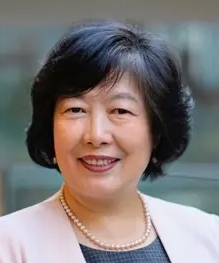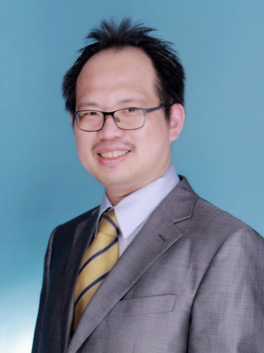Keynote Speakers

Prof. Jie Lu
University of Technology Sydney, Australia
Distinguished Professor Jie Lu is a world-renowned scientist in the field of computational intelligence, primarily known for her work in concept drift, fuzzy transfer learning, recommender systems, and decision support systems. She is an IEEE Fellow, IFSA Fellow, and Australian Laureate Fellow. Currently, Prof Lu is the Director of the Australian Artificial Intelligence Institute (AAII) at University of Technology Sydney (UTS). She has published about 500 papers in leading journals and conferences; won 10 Australian Research Council (ARC) Discovery Projects and over 20 industry projects; and supervised 46 doctoral students to completion. Prof Lu serves as Editor-In-Chief for Knowledge-Based Systems and International Journal of Computational Intelligence Systems, and is a recognized keynote speaker, delivering over 30 keynote speeches at international conferences.
Title: Machine Learning for Decision Support in Complex Environments
AbstractŁş
The talk will present how machine learning can innovatively and effectively learn from data to support data-driven decision-making in uncertain and dynamic situations. A set of new fuzzy transfer learning theories, methodologies and algorithms will be presented that can transfer knowledge learnt in one or more source domains to target domains by building latent space, mapping functions and self-training to overcome tremendous uncertainties in data, learning processes and decision outputs (classification and regression). Another set of concept drift theories, methodologies and algorithms will be discussed about how to handle ever-changing dynamic data stream environments with unpredictable stream pattern drifts by effectively and accurately detecting concept drift in an explanatory way, indicating when, where and how concept drift occurs and reacting accordingly. These new developments enable advanced machine learning and therefore enhance data-driven prediction and decision support systems in uncertain and dynamic real-world environments.

Prof. Witold Pedrycz
University of Alberta, Canada
Witold Pedrycz (FĄŻ98) received the M.Sc., Ph.D., and D.Sci. degrees from the Silesian University of Technology, Gliwice, Poland.,He is currently a Professor and the Canada Research Chair in computational intelligence with the Department of Electrical and Computer Engineering, University of Alberta, Edmonton, AB, Canada. He is also with the System Research Institute, Polish Academy of Sciences, Warsaw, Poland, where he is also a Foreign Member. He has authored 15 research monographs covering various aspects of computational intelligence, data mining, and software engineering. His current research interests include the computational intelligence, fuzzy modeling, granular computing, knowledge discovery and data mining, fuzzy control, pattern recognition, knowledge-based neural networks, relational computing, and software engineering. Dr. Pedrycz currently serves as a member for a number of editorial boards of other international journals. He is a Fellow of the Royal Society of Canada. He was a recipient of the IEEE Canada Computer Engineering Medal, the Cajastur Prize for Soft Computing from the European Center for Soft Computing, the Killam Prize, and the Fuzzy Pioneer Award from the IEEE Computational Intelligence Society. He is intensively involved in editorial activities. He is an Editor-in-Chief of Information Science, and Editor-in-Chief of WIREs Data Mining and Knowledge Discovery (Wiley) and the International Journal of Granular Computing (Springer).
Title:Federated Learning, Knowledge Transfer, and Knowledge Distillation: Towards Green and Granular Machine Learning
AbstractŁş
The visible trends of Machine Learning (ML) are inherently associated with the diversity of data and innovative ways they are used in order to carry out learning pursuits. The ongoing objectives of the research agenda are also investigated in the context of green ML (usually referred to as green AI). One can identify three ongoing challenges with far-reaching methodological implications, namely (i)completing designs in the presence of strict constraints of privacy and security, (ii) efficient model building completed with limited data of varying quality, and (iii) a reduction of computing effort knowledge transfer and distillation.
We advocate that to conveniently address these quests, it becomes beneficial to engage the fundamental framework of Granular Computing to enhance the existing approaches (such as e.g., federated learning in case of (i) and transfer knowledge in (iii)) or establish new directions to the problem formulation. Likewise, it is also essential to establish sound mechanisms of evaluation of the performance of the ML architectures. It will be demonstrated that various ways of conceptualization of information granules in terms of fuzzy sets, sets, rough sets, and others may lead to efficient solutions.
To establish a suitable conceptual ML framework, we include a brief discussion of concepts of information granules and Granular Computing. We show how granular models endow numeric models with their quantification mechanisms to deliver a prerequisite for machine learning constructs with an emphasis on associated computational overhead.
To proceed with a detailed discussion, a concise information granules-oriented design of rule-based architectures is outlined. A way of forming the rules through unsupervised federated learning is investigated along with algorithmic developments. A granular characterization of the model formed by the server vis-a-vis data located at individual clients is presented. It is demonstrated that the quality of the rules at the clientĄŻs end is described in terms of granular parameters and subsequently the global model becomes represented as a granular construct. The roles of granular augmentations of models in the setting of granular knowledge distillation are outlined. It is shown how the agenda of green ML is effectively realized by exploring information granules and stressing an importance of the holistic perspective at critical trade-offs among interpretability, enormous computational overhead, and transparency of predictors and classifiers.
Invited Speakers
Prof. Giancarlo Fortino
University of Calabria, Italy
Giancarlo Fortino (IEEE Fellow 2022) is Full Professor of Computer Engineering at the Dept of Informatics, Modeling, Electronics, and Systems of the University of Calabria (Unical), Italy. He received a PhD in Computer Engineering from Unical in 2000. He is also distinguished professor at Wuhan University of Technology and Huazhong Agricultural University (China), high-end expert at HUST (China), senior research fellow at the Italian ICAR-CNR Institute, CAS PIFI visiting scientist at SIAT ¨C Shenzhen, and Distinguished Lecturer for IEEE Sensors Council. At Unical, he is the RectorĄŻs delegate to IntĄŻl relations, the chair of the PhD School in ICT, the director of the Postgraduate Master course in INTER-IoT, and the director of the SPEME lab as well as co-chair of Joint labs on IoT established between Unical and WUT, SMU and HZAU Chinese universities, respectively. Fortino is currently the scientific responsible of the Digital Health group of the Italian CINI National Laboratory at Unical. He is Highly Cited Researcher 2020 and 2021 in Computer Science by Clarivate. Currently he has 19 highly cited papers in WoS, and h-index=67 with 16300+ citations in Google Scholar. His research interests include wearable computing systems, e-Health, Internet of Things, and agent-based computing. He is author of 550+ papers in intĄŻl journals, conferences and books. He is (founding) series editor of IEEE Press Book Series on Human-Machine Systems and EiC of Springer Internet of Things series and AE of premier int'l journals such as IEEE TAFFC-CS, IEEE THMS, IEEE T-AI, IEEE IoTJ, IEEE SJ, IEEE JBHI, IEEE SMCM, IEEE OJEMB, IEEE OJCS, Information Fusion, JNCA, EAAI, etc. He chaired many intĄŻl workshops and conferences (120+), was involved in a huge number of intĄŻl conferences/workshops (500+) as IPC member, is/was guest-editor of many special issues (75+). He is cofounder and CEO of SenSysCal S.r.l., a Unical spinoff focused on innovative IoT systems, and recently cofounder and vice-CEO of the spin-off Bigtech S.r.l, focused on big data, AI and IoT technologies. Fortino is currently member of the IEEE SMCS BoG and of the IEEE Press BoG, and chair of the IEEE SMCS Italian Chapter.
Title:Pushing Intelligence to the Edge of Internet of Things: A new Paradigm enabling Next-Generation Smart Systems of Systems
AbstractŁş
Internet of Things will not be only a new worldwide network interconnecting trillions of (smart) devices but, most importantly, a platform (system of systems) where to develop a new wave of (cyber-physical) services for humans and machines. In this context, in order to build IoT systems, the so-called IoT-Edge-Cloud continuum paradigm is having tremendous focus from the research community as well as from the industry. This paradigm can therefore be an enabler to push intelligence from the core of the network to its edge: from centralized data mining to embedded machine learning in tiny IoT devices to federated machine learning involving networks of edge devices. Moreover, methodologies are emerging to support analysis, design, implementation and evaluation of solutions involving mining and machine learning at the IoT edge. In this talk, we will focus on IoT from both the architectural and machine learning at the edge perspectives. Finally, some use cases will be discussed related to mobile edge computing, ambient assisting living environments, and intelligent transportation systems.

Aston University, United Kingdom
http://www.academicconf.com/Video/Details?paperId=32800
https://research.tees.ac.uk/en/persons/victor-chang
Prof. Victor Chang is currently a Professor of Business Analytics at Aston Business School, Aston University, UK. He was a Professor of Data Science and Information Systems at SCEDT, Teesside University, Middlesbrough, UK, between September 2019 and May 2022. He was a Senior Associate Professor, Director of Ph.D. (June 2016- May 2018) and Director of MRes (Sep 2017 - Feb 2019) at International Business School Suzhou (IBSS), XiĄŻan Jiaotong-Liverpool University (XJTLU), Suzhou, China, between June 2016 and August 2019. He was also a very active and contributing key member at Research Institute of Big Data Analytics (RIBDA), XJTLU. He was an Honorary Associate Professor at University of Liverpool. Previously he was a Senior Lecturer at Leeds Beckett University, UK, between Sep 2012 and May 2016. Within 4 years, he completed Ph.D. (CS, Southampton) and PGCert (Higher Education, Fellow, Greenwich) while working for several projects at the same time. Before becoming an academic, he has achieved 97% on average in 27 IT certifications. He won a European Award on Cloud Migration in 2011, IEEE Outstanding Service Award in 2015, best papers in 2012, 2015 and 2018, the 2016 European special award and Outstanding Young Scientist 2017. He is a visiting scholar/Ph.D. examiner at several universities, an Editor-in-Chief of IJOCI & OJBD journals, former Editor of FGCS, Associate Editor of IEEE TII, JGIM, IJBSR, IJEBM & Cyber Security & Apps. He's also an Editor of Information Fusion, IDD and Scientific Reports journal, a founding chair of two international workshops and founding Conference Chair of IoTBDS and COMPLEXIS since Year 2016. He is the founding Conference Chair for FEMIB since Year 2019. He published 3 books as sole authors and the editor of 2 books on Cloud Computing and related technologies. He gave 30 keynotes at international conferences. He is widely regarded as one of the most active and influential young scientists and experts in IoT/Data Science/Cloud/security/AI/IS, as he has experience developing 10 different services for multiple disciplines.
Title: Federated Learning-Based Synchrotron X-ray Microdiffraction Image Screening
Abstract:
Synchrotron X-ray microdiffraction (ŚĚXRD) services are conducted for industrial minerals to identify their crystal impurities in terms of crystallinity and potential impurities. ŚĚXRD services generate huge loads of images that have to be screened before further processing and storage. However, there are insufficient effective labeled samples to train a screening model since service consumers are unwilling to share their original experimental images. In this paper, we propose a physics law-informed federated learning (FL) based ŚĚXRD image screening method to improve the screening while protecting data privacy. In our method, we handle the unbalanced data distribution challenge incurred by service consumers with different categories and amounts of samples with novel client sampling algorithms. We also propose hybrid training schemes to handle asynchronous data communications between FL clients and servers. The experiments show that our method can ensure effective screening for industrial users conducting industrial material testing while keeping commercially confidential information.
